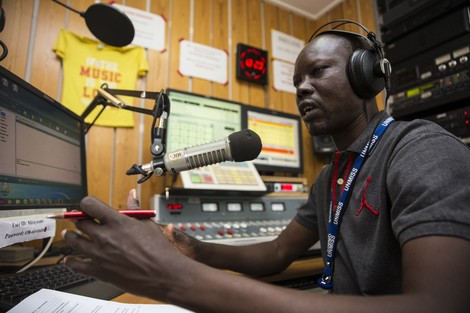Your podcast discovery platform
Curious minds select the most fascinating podcasts from around the world. Discover hand-piqd audio recommendations on your favorite topics.

piqer for: Globalization and politics Global finds
Freelance journalist based in Istanbul. Keeping an eye on Turkish politics and development.
How Much Influence Does Hate Speech On Social Media Have On South Sudan's Conflict?
The analysis by Lisa Clifford for Irin News highlights the dangers of hate speech on social media when it comes to conflict, even in areas with limited internet and mobile phone access, such as South Sudan.
Theo Dolan, director of PeaceTech Lab Africa, says their research has shown that online hate speech from the diaspora – often seen as more educated and better informed – is contributing to the violence. Many in South Sudan don't have Facebook, but word of mouth and phone calls do the job.
Messages about killings and rape invade the Internet. Some even come from officials.
But not everyone agrees on the link between social media and the escalation of violence. Researcher Saskia Baas, for example, attributes the violence to spreading rumours and to historical grievances. According to her, politicians are taking advantage of this situation both online and offline.
Susan Benesch, director of the Dangerous Speech Project, also makes an interesting argument about the diaspora. They don't start disseminating hateful speech; they just won't stop doing it. That sort of discourse is so widespread in South Sudan, that it is just normal to fear the other and take those prejudices with you when you leave.
And that's dangerous. As Clifford recalls in her analysis, hate speech contributed to the Rwandan genocide in 1994.
